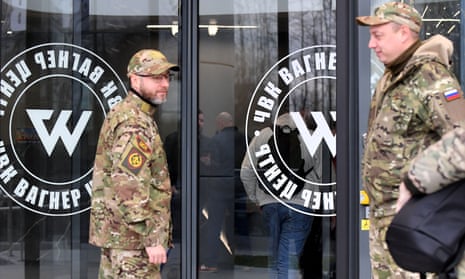Family members of a former Russian prison inmate, who defected to Ukraine after being recruited by the Kremlin-linked private military group Wagner, have expressed “horror” over his apparent execution after a gruesome video emerged on Friday that showed him being repeatedly struck with a sledgehammer.
Footage of the summary killing of Yevgeny Nuzhin was posted over the weekend by the Wagner-linked Telegram channel Grey Zone. In the video, Nuzhin was shown lying down with his head taped to a brick wall as an unidentified man in combat clothing hits him with a sledgehammer.
Nuzhin, 55, had been serving a 24-year prison sentence for a murder he committed in 1999 when he was freed in July and conscripted into Wagner, a notorious military group run by Yevgeny Prigozhin, a powerful Russian businessman and a close ally of Vladimir Putin.
Following his capture by Ukrainian forces in September, Nuzhin gave a series of interviews in the country, in which he said he had joined the Wagner group to get out of prison and that he quickly hatched a plan to surrender to Ukraine.
In the interviews, he also criticised the Russian leadership and expressed his desire to join the Ukrainian forces and fight against Moscow.
Ilya Nuzhin, Yevgeny’s son, confirmed to the Guardian on Monday that the man in the video was his father but declined to give further comments, citing “security concerns”.
In an interview with the Russian human rights group Gulagu.net late on Sunday, Ilya Nuzhin said his family learned of their father’s death through Telegram, which left them “horrified”.
“Our whole family was in tears watching the video … he was murdered like an animal,” Nuzhin said.
It was not immediately clear who was behind the video, or how Nuzhin would have ended up back in Russia.
Unconfirmed reports said Nuzhin had been part of a recent Russian-Ukrainian prisoner exchange, news that has led to concerns among human rights groups.
“There are many questions and I hope we get to the bottom of this,” Vladimir Osechkin, the head of Gulagu.net, a rights group focusing on alleged abuses in the Russian prison system, told the Guardian.
“Ukraine had a responsibility towards Nuzhin and he should have not been exchanged, given the dangers he faced in Russia.”
Osechkin said all signs pointed to Wagner’s involvement in the killing and said he planned to send a request to Russia’s authorities to launch a criminal case.
“Wagner would have not been able to commit this medieval execution without the approval of the Russian security services,” Osechkin said.
Prigozhin, who is under western sanctions for his role in Wagner, on Sunday voiced his approval for the killing, calling Nuzhin a “traitor”.
“Nuzhin betrayed his people, betrayed his comrades, betrayed consciously,” he said.
In September, Prigozhin, known as “Putin’s chef” because his catering business hosted dinners attended by the Russian president, admitted to founding Wagner, a link he has previously repeatedly denied.
Wagner has repeatedly been accused of war crimes and human rights abuses, including of the torture and slaying of prisoners in Syria, where it has been fighting alongside the Russian army and the government of Bashar al-Assad.
The Kremlin on Monday sought to distance itself from the video, which has been widely discussed on Russian social media, with spokesperson Dmitry Peskov saying “it was not our business”.
The Guardian has previously reported that Prigozhin was personally recruiting soldiers from Russia’s extensive penitentiary system in an attempt to compensate for acute shortages of personnel on the battlefield. According to one Russian human rights group, Wagner has recruited more than 20,000 prisoners to fight in Ukraine so far.
There have also been widespread reports of Wagner recruiting foreign convicts in prisons across Russia, including citizens from the five central Asian nations.
On Monday, Zambia’s foreign affairs minister said a 23-year-old national from that country, who was serving a jail sentence at a prison on the outskirts of Moscow, ended up fighting in Ukraine, where he was killed.
